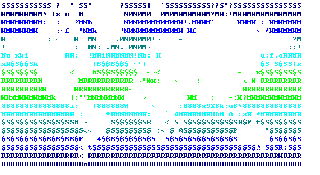 Networked Information in an International Context
Networked Information in an International Context Networked Information in an International Context
Networked Information in an International ContextA CONFERENCE ORGANISED BY UKOLN IN ASSOCIATION WITH
THE BRITISH LIBRARY, CNI, CAUSE AND JISC
9th and 10th February 1996 at the Ramada Hotel, Heathrow, UK
As Sir Brian Follett reminds us in his opening presentation, the bits and bytes which constitute networked information are no respecters of international boundaries. Any issues concerning the effective use of network-based information or resources truly are best dealt with internationally; and there is no shortage of issues. This conference confirmed the high level of interest in issues to do with production, distribution, management and preservation of digital resources; and that there is a strong desire to identify, face and overcome these issues. Fortunately, the wish to resolve such problems is as international as the problems. As Lynne Brindley pointed out in her welcoming address, the significance of the event was marked symbolically in two ways: first by the international connotations of the venue, Heathrow; and second by the integrative nature of the programme being represented by the sponsorship of the event by five leading institutions: The British Library, CNI, CAUSE and JISC.
The main part of the conference consisted of 18 formal presentations (see Annex 1 for the complete programme). Four were on general topics, giving perspectives of some important developments in the UK and the complex and changing cost modelling issues which concern us all. The other presentations described a varied sample of specific projects. The projects cover a range of subjects; they are grouped under the following five headings:
The presentations, and the conference as a whole, was marked by impressively high levels of energy and participation, as Paul Evan Peters remarked. I hope that this report conveys the sense of excitement and progress which was evident during the conference.
The remainder of this report consists primarily of accounts of the conference presentations. The accounts were prepared by consultants. They are not formal papers written by the speakers, though in many cases notes, slides and other materials were provided by the speakers. In all cases, speakers were offered the opportunity to review the account of their presentation.
In keeping with its subject matter, the organisers have decided to publish this report primarily on the Internet rather than on paper. This has the benefit of allowing us to represent speakersí references by means of hyperlinks rather than by mere static footnotes on paper. As some of the references will evolve during the period in which this report is of interest, this adds value by ensuring that the most up to date material is available. Of course, there is an accompanying potential disadvantage, namely that some of the referenced material will be taken off the network or will be moved to a different URL; an apposite illustration of one of the significant issues facing users of networked information!
The use of networks, and the amount of information on the Internet is growing very rapidly; by some measures at a rate which is more than logarithmic [1] . There is general agreement that scholarly resources are used internationally. However, it is notable that although many projects and initiatives presented at the conference could have world-wide relevance, interest and impact, the majority are essentially national in their organisation. This underlines the importance of an international event such as this conference; it provided a valuable opportunity for practitioners from several countries to share experiences. Paul Evan Peters expressed, in the closing session, the hope that the discussions which took place might give rise to joint initiatives building on the strengths of the existing national projects; this conference was one way in which synergy can usefully be encouraged , and others should actively be sought in order to maximise and distribute the benefits of work in this field.
Finally, I want to express thanks to the speakers who all tolerantly supplied notes, slides and other materials to help generate this report. I hope that they find their ideas are expressed accurately, and that they will forgive any omissions by abbreviation. Thanks are also due to my colleague Mike Arblaster, who assisted in the preparation of several of the accounts; to Isobel Stark, who applied the HTML tags; and to Hazel Gott of UKOLN who, as chief organiser of this conference, patiently contended with a stream of requests for details and clarifications during the preparation of this report.
[1] See, for example, URL http://www.nw.com/
British Library R&D Report 6250
© The British Library Board 1996
© Joint Information Systems Committee of the Higher Education Funding
Bodies 1996
The opinions expressed in this report are those of the contributors and not necessarily those of the sponsoring organisations.
RDD/C/187
The primary publication medium for this report is via the Internet at URL
http://www.ukoln.ac.uk/services/papers/bl/rdr6250/
It may also be purchased as photocopies or microfiche from
the British Thesis Service, British Library Document Supply Centre,
Boston Spa, Wetherby, West Yorkshire, LS23 7BQ.
This report of the conference was prepared by The Marc Fresko Consultancy Telephone +44 181 645 0080 E-mail marc@easynet.co.uk
Converted to HTML by Isobel Stark of UKOLN, July 1996